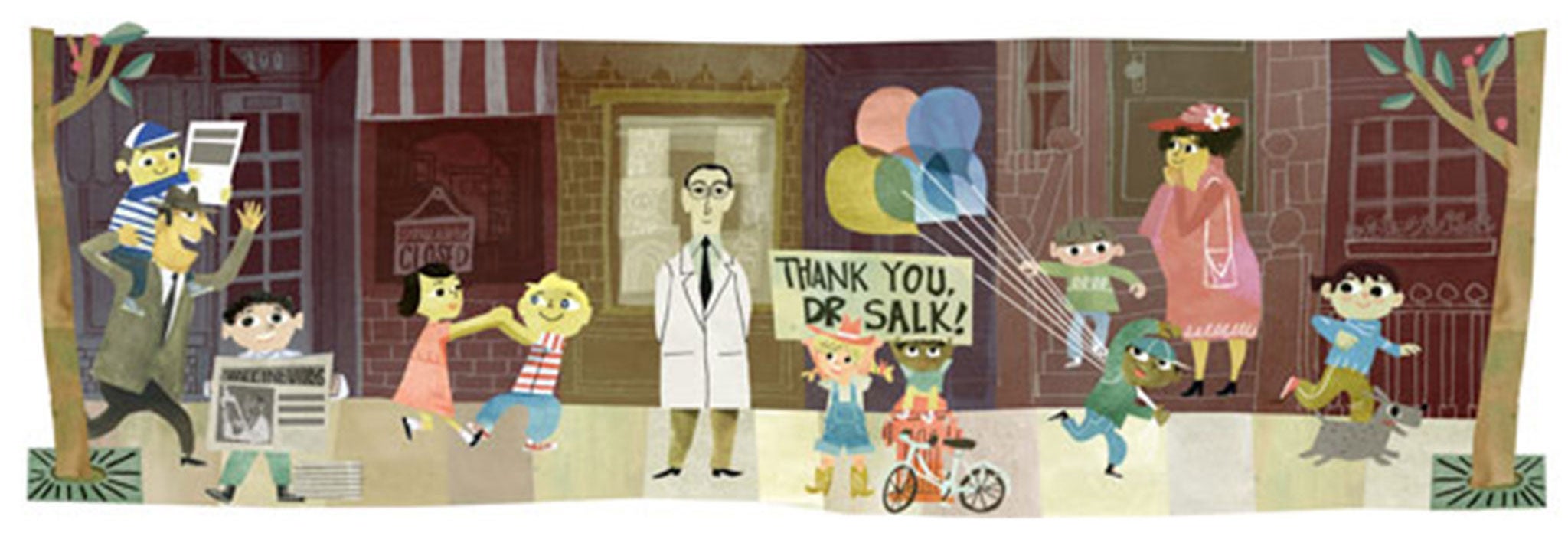Jonas Salk 100th Birthday: Polio vaccine developer's extraordinary achievement celebrated with a Doodle
Salk never patented the vaccine which made him an international hero

Google has celebrated the 100th birthday of Dr Jonas Salk, the American scientists who developed the first successful polio vaccine, with a Doodle on its homepage.
The heart-warming illustration depicts two children holding up a sign reading “Thank you, Dr Salk!” – a tribute to the virologist’s work against a disease whose main victims were children.
In the two years before his vaccine was made widely available, the average number of polio cases in the US was more than 45,000. By 1962, that number had dropped to 910.
Salk graduated from New York University School of Medicine in 1939 with his M.D. degree, and soon started work as a staff physician at Mount Sinai Hospital in New York City.
He would then apply his talents to the field of research, becoming a fellow at the University of Michigan where he worked to develop a flu vaccine at the request of the US Army.
By 1947, he was appointed director of the Virus Research Laboratory at the University of Pittsburgh School of Medicine, the institution where he developed the techniques that would help him discover a vaccine for polio.
Salk re-worked the established idea of a vaccine by suggesting that immunity could be established in the body by using inactivated viruses.
The virologist’s research soon caught the attention of Basil O'Connor, president of the National Foundation for Infantile Paralysis (now known as the March of Dimes Birth Defects Foundation), whose organisation funded Salk's efforts to develop a vaccine against the devastating disease.
The resulting vaccine was tested first in monkeys and then in patients at the D.T. Watson Home for Crippled Children (now The Watson Institute), who already had polio.
Polio-free volunteers, including Salk, his laboratory staff, his wife and their children, were given the vaccine – none of whom reacted badly to the experimental drug.
In 1954, national testing began on one million children, ages six to nine, who became known as the Polio Pioneers: half received the vaccine, and half received a placebo. On April 12, 1955, the vaccine was declared safe and effective.
Salk chose not to patent the vaccine and did not earn any money from his discovery, preferring to see it distributed as widely as possible.
Salk died at age 80 on 23 June, 1995.
Join our commenting forum
Join thought-provoking conversations, follow other Independent readers and see their replies
Comments
Bookmark popover
Removed from bookmarks